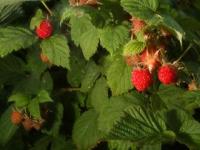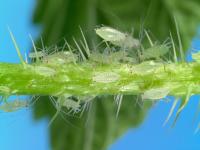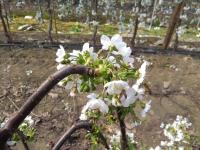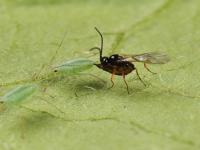
An overview of Soft Fruit IPM
This resource is designed as an educational tool for anyone with an interest in integrated pest management (IPM) of pests in horticulture crops. IPM involves using a combination of methods....Click here to go to this Sway

Resistant and tolerant varieties
Using resistant and tolerant cultivars is an important tool of any IPM toolbox. The James Hutton institute has been researching the use of resistant and tolerant soft fruit varieties for several pest species and diseases for over 40 years. Read more....
Monitoring and alternative control strategies
Monitoring provides a way of alerting growers to potential problems and allows control measures to be applied before the situation becomes harder to control. Alternative control measures are an important part of an IPM strategy and often these alternatives, such as biocontrol, work best if applied early. Read more...

Pollinators
Although many soft fruit species are capable of self-pollination, insect pollination produces higher yields and more aesthetically attractive fruit. Commercially supplied pollinators and naturally occurring pollinators both contribute to pollination. Read more...

Molecular techniques
Although not used directly by the grower, molecular techniques are vital to identify pests accurately and understand the population dynamics of pests. Molecular analysis of the bacterial community associated with vine weevils is a vital step in understanding whether the insect bacterial community plays an important role in insect adaptation (Morera-Margarit et al., 2019). Read more here....

Other Information
The toolbox is constantly modified as changes in agronomic practices (protected environments and reduced reliance on chemicals), climate change and accidental introductions of pests alter the relative importance of different pests and diseases. Being able to fill in knowledge gaps of significant pests (e.g. report on soft fruit aphids) and availability to keep these pests alive in collections helps us undertake research that is vital for sustainable soft fruit production (e.g. Graham et al., 2019).
